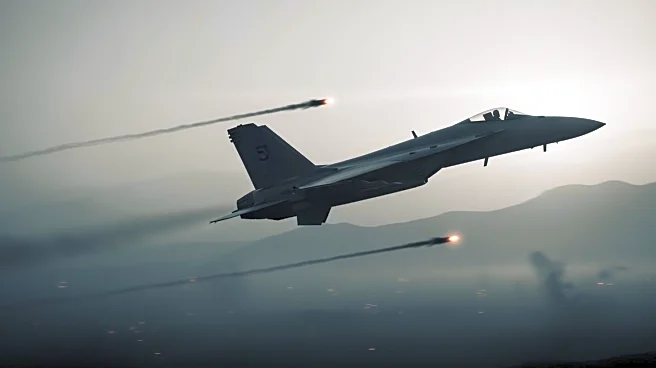What's Happening?
A recent ruling by the 9th Circuit Court has upheld President Trump's authority to deploy National Guard troops in Oregon, a decision that has drawn criticism and comparisons to past controversial legal decisions. The ruling was made despite dissenting
opinions that argued there was no sufficient threat to justify such deployment. Critics have likened this decision to historical legal tragedies such as Dred Scott vs. Sanford and Korematsu vs. United States, which were later recognized as grave injustices. The ruling has sparked debate over the federal government's power to intervene in state matters and the implications for civil liberties.
Why It's Important?
This ruling has significant implications for the balance of power between federal and state governments, particularly concerning the use of military force within U.S. borders. It raises questions about the criteria for federal intervention and the protection of civil liberties during such deployments. The decision could set a precedent for future federal actions in states, potentially affecting how civil unrest and public safety issues are managed. The controversy also highlights the ongoing debate over the appropriate use of military force in domestic situations and the potential for overreach by the federal government.
Beyond the Headlines
The ruling may have long-term implications for civil-military relations in the United States. It underscores the need for clear legal frameworks governing the deployment of military forces domestically and the protection of civil rights. The decision also reflects broader societal tensions regarding federal authority and individual freedoms, which could influence future legal and political discourse.
















